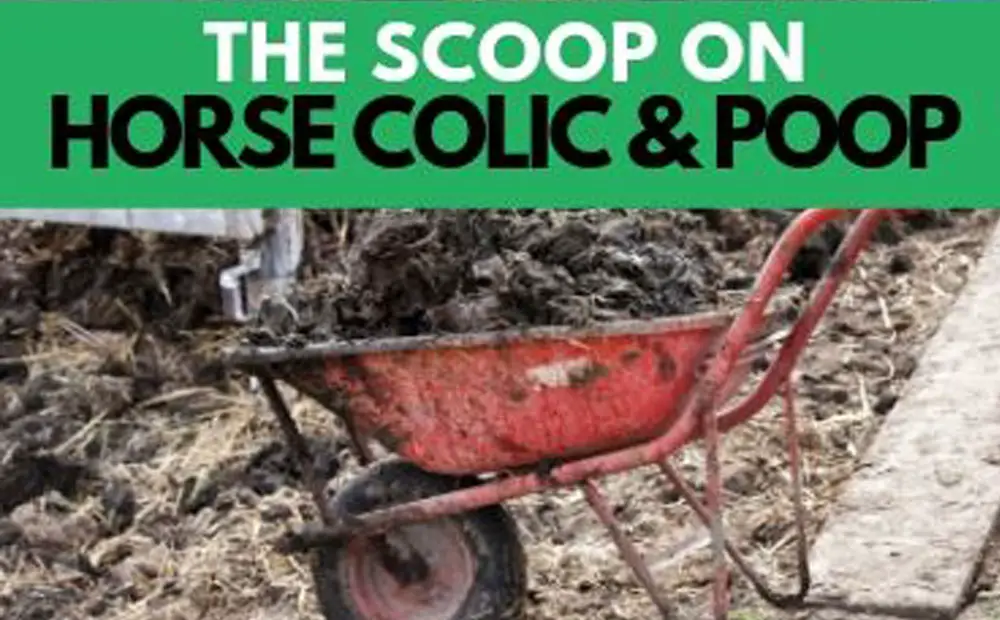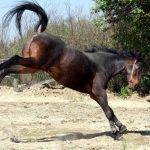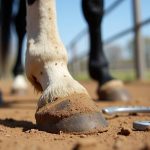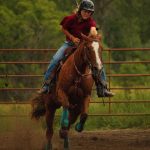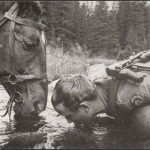Will a Horse With Colic Poop? Yes, a horse with colic will poop. Colic is a term used to describe abdominal pain in horses that can have many causes and may result in digestive disturbances such as diarrhea or constipation. Horse owners should be aware of the signs and symptoms of colic which include restlessness, sweating, rolling and pawing at the ground, kicking at their abdomen and looking over their shoulder.
If your horse has colic it may still pass stool but it might not be normal in color or consistency. It could also be accompanied by gas or straining due to the discomfort caused by the underlying issue causing the colic episode. To prevent further complications from developing due to colic episodes it’s important for horse owners to act quickly if they suspect their animal is suffering from this condition.
Yes, a horse with colic can still have bowel movements. While the amount and frequency of these bowel movements may be reduced due to discomfort or lack of appetite, horses with colic often still defecate normally. The consistency and color of the stool can provide insight into whether or not the horse is suffering from colic, as it should appear firm and dark in color.
If there are any changes in texture or color, you should seek veterinary advice immediately.
Early Signs of Colic in Horses
Horses that have colic may display a range of signs and symptoms, though the early signs can be subtle. Signs to watch for include decreased appetite, changes in behavior or attitude such as restlessness or irritability, sweating without exertion, increased lying down time, grinding teeth, abnormal position when lying down or standing up, and frequent pawing at the ground. If you suspect your horse is showing signs of colic it’s important to seek veterinary attention immediately as serious problems can arise quickly with this condition.
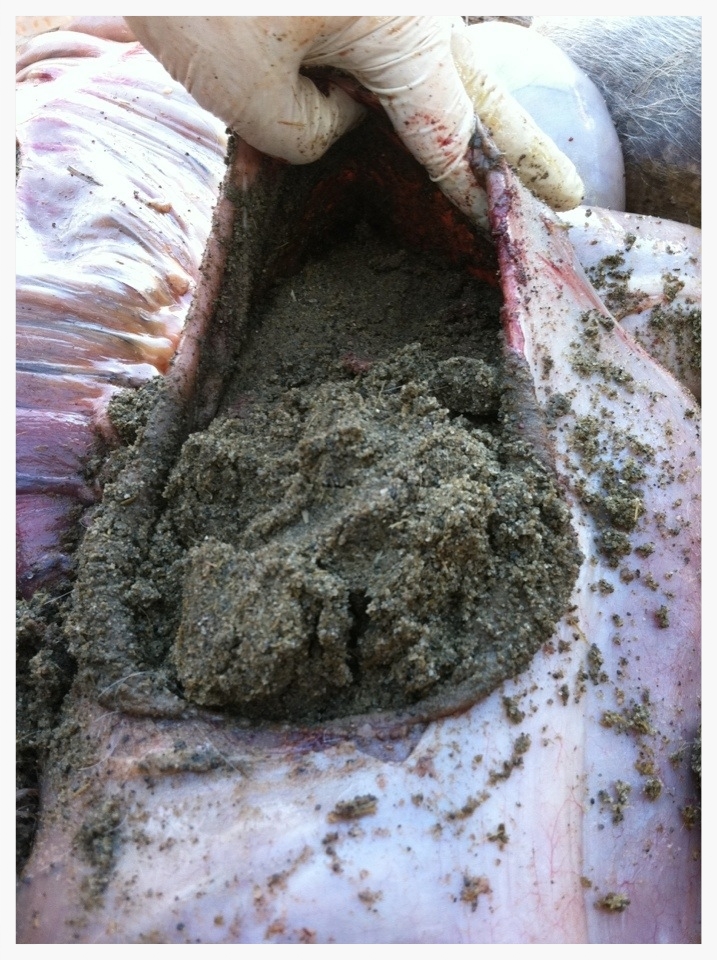
Can a Horse Still Poo With Colic?
The answer to this question is yes, horses can still poo with colic. It is important to note that the amount of manure produced by a horse with colic depends on the severity and type of colic they are suffering from. Generally, it is not uncommon for horses who suffer from mild or moderate episodes of gas-related colic to produce normal amounts of manure while they are experiencing pain and discomfort.
On the other hand, if your horse has a more severe episode of spasmodic or impaction-related colic then their gut may be affected in such a way that their normal fecal output reduces dramatically; in some cases, there may be no evidence at all. If you suspect your horse has developed signs and symptoms associated with any form of colic then it is essential you contact your veterinarian for an immediate assessment as failure to do so could result in serious complications which can even lead to death.
How Do You Get a Colic Horse to Poop?
The first step in getting a colic horse to poop is to assess the situation. Check the horse’s temperature and gut sounds, as well as its attitude and appetite. If it has been some time since your horse last defecated, consult with your veterinarian for further instructions.
In general, administering a laxative or mineral oil can help stimulate bowel movements in horses with mild cases of constipation or impaction colic. For more serious cases of colic, more aggressive treatments may be necessary such as enemas administered by your veterinarian. Additionally, providing plenty of water and hay can also help soften food particles that get stuck in the intestinal tract which often leads to constipation.
Once you’ve determined what treatment route is best for your horse make sure that you follow any dietary changes recommended by your vet closely including adding fiber sources like alfalfa cubes if needed and limiting grain intake if possible until normal digestion resumes.
Will a Horse With Colic Fart?
Horses are just like humans in many ways and can suffer from a wide range of ailments including colic. Colic is an umbrella term for several different conditions that can cause abdominal pain and discomfort in horses. While the exact causes of colic vary, it is typically related to dietary issues such as improper feeding or inadequate hydration, as well as environmental factors such as parasites or changes in climate.
One common symptom associated with colic is excessive gas production which leads to frequent farting. So yes, it’s quite possible for a horse with colic to fart frequently due to the excess gas being produced by its digestive system. If your horse displays any signs of colic then you should consult your veterinarian immediately so they can assess your horse and determine the best course of action for treatment.
What are the First Signs of Colic in a Horse?
Colic in horses is a very serious condition that can be fatal if not treated promptly and appropriately. The first signs of colic are often subtle, so it’s important to know what they are so you can spot them early. Common symptoms include loss of appetite, restlessness or agitation, pawing at the ground, rolling or thrashing about, an increase in temperature and pulse rate, flank-watching (looking around with the head turned sideways), frequent passing of small amounts of gas or feces with little substance.
Other signs such as sweating profusely, kicking at the belly area, or stretching out on its side may also occur but usually only later in more advanced stages. If your horse displays any of these symptoms then contact your vet immediately for further advice and treatment. Early diagnosis is key to preventing potentially life-threatening complications from developing due to colic.
What to do if your horse is clicking
Conclusion
In conclusion, colic can be a very serious condition in horses and can lead to death if not treated promptly. It is important for horse owners to recognize the signs of colic so they can seek veterinary help as soon as possible. The presence or absence of poop is just one of many symptoms that may indicate the presence of colic in a horse, but it cannot definitively diagnose or rule out this health issue.
Ultimately, it’s best to contact your veterinarian right away if you suspect that your horse has colic rather than relying solely on observations like whether or not they are pooping normally.
Janet G Kulick is an experienced horse rider, trainer, and owner of the informative horse blog, Horseray.com. Her engaging writing style and wealth of knowledge on horse care, riding, and training make her a trusted source for horse enthusiasts worldwide.

